Past members
|
Ecology and Evolutionary Biology, FBLS |
How neonatal nutrition affects the body systems involved in sexual signalling and ageing. Comparative analyses of avian mating systems; maternal effects; and differential allocation. UV-reflectant and fluorescent signalling; sex allocation in birds; cooperative breeding; evolution of sociality. |
Harriet Auty Institute of Biodiversity, Animal Health and Comparative Medicine, CMVLS |
My interests are in veterinary epidemiology and ecology of infectious diseases, especially pathogens transmitted between livestock, wildlife and people. Currently I am working on the ecology of trypanosomiasis and surveillance approaches for other zoonotic diseases around Serengeti, Tanzania |
Paul Bessell |
I am researching patterns of human campylobacter cases in Scotland. Particular areas of interest are environmental risk factors for infection and spatio-temporal trends in infection. |
|
Institute of Biodiversity, Animal Health and Comparative Medicine, CMVLS |
 Controlling canid diseases around National Parks in Tanzania and Ethiopia. State-space models of epidemiological processes and animal movement models, Bayesian statistics, resource selection functions and ecological applications of GIS. Controlling canid diseases around National Parks in Tanzania and Ethiopia. State-space models of epidemiological processes and animal movement models, Bayesian statistics, resource selection functions and ecological applications of GIS. |
|
Comparative Epidemiology, FVM |
Isabella has now taken up a faculty position of Penn State. Mechanisms of host-parasite interaction and effects on population dynamics, characteristics of interspecific parasite interactions and consequences for dynamics of a single parasite species, role of host heterogeneities and consequences for parasite dynamics immuno-epidemiology of host-parasite interactions. |
 |
| Adela Comanici
Comparative Epidemiology, FVM |
My research interests lie in the areas of mathematical biology (epidemiology), dynamical systems, bifurcation theory and nonlinear dynamics. Recently, I became interested in understanding the spatio-temporal dynamics of the infectious diseases via various mathematical models, and how these are affected by control strategies, with applications to the networks of livestock movements in the UK. |
Eleanor Cottam IAH-Pirbright & Ecology and Evolutionary Biology, FBLS |
Eleanor was a graduate student supported by the BBSRC and co-supervised by Dan Haydon, and Don King and David Paton of the Institute of Animal Health, Pirbright. Eleanor completed her PhD in 2008 on the microevolutionary dynamics of FMDV, producing 4 excellent publications and has gone on to conduct post-doctoral work in the School of Medicine at the University of East Anglia. |
|
Comparative Epidemiology, FVM |
Small animal epidemiology |
|
Ecology and Evolutionary Biology, FBLS |
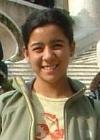 Anaid has submitted her PhD on the evolution of phenotypic plasticity in the nematode, C. remanei and started a NERC funded post-doc with Mark Viney at Bristol University. Her first paper in the Journal of Nematology came out in early 2009. Anaid has submitted her PhD on the evolution of phenotypic plasticity in the nematode, C. remanei and started a NERC funded post-doc with Mark Viney at Bristol University. Her first paper in the Journal of Nematology came out in early 2009. |
| Karim Gharbi Production, disease and welfare, FVM |
I am interested in genome biology and transmission genetics. I am particularly interested in disease resistance and host-pathogen interactions. My current research is primarily focused on the role of host genetics in the susceptibility and transmission of parasitic crustaceans (sea lice) that affect both wild and farmed salmon. |
Pratchayapong Yasri (Kak) |
I am currently working on evolution education, and specifically on identifying different ways in which secondary school students view the relationship between science and religion. |
|
Joaquin Prada Jimenez de Cisneros |
I am interested in mathematical modelling of infectious diseases. My current research focuses on developing an immunologically and genetically explicit model of sheep infected with nematodes. The model can then be used for example to predict outcomes of selective breeding using novel markers of disease. |
|
Sam Lycett Institute of Biodiversity, Animal Health and Comparative Medicine, CMVLS |
I am a computational biologist and am interested in the pattern of evolution and spread of pathogens including Avian and Swine Influenza and Bovine TB. My research makes use of the large quantity of sequence data now available, and I apply machine learning techniques and Bayesian phylogenetics to investigate cross species transmissions, host adaptations, epistatic interactions, phylodynamics and phylogeography. I'm developing methods and tools for integrating sequence and epidemiological data to infer transmission patterns and contact networks for livestock pathogens of interest in Scotland, the UK and surrounding countries. |
| My research is on climate change communication for behavioural change. |
| I work on mathematical models of the genetic instabilities associated with the age of onset of myotonic dystrophy |
|
Institute of Biodiversity, Animal Health and Comparative Medicine, CMVLS |
My research interests include entomology and public health, and particularly the mosquitoes that transmit malaria. I have previously been involved in studies of malaria vector ecology and behaviour in Iran. I am currently investigating the impact of mosquito nutrition on the fitness of African Anopheline vectors and their ability to transmit malaria parasites. |
|
James Buckley Institute of Biodiversity, Animal Health, and Comparative Medicine, CMVLS |
My research interests focus on using laboratory and field experiments, in conjunction with new genomic approaches, to understand adaptation of an organism to its abiotic environment and its interactions with other organisms. I am currently working on a project to explore the genetic basis of interactions between a flowering plant (Arabidopsis lyrata) and its pathogens (particularly oomycetes in the genus Albugo). |
|
Institute of Biodiversity, Animal Health and Comparative Medicine, CMVLS |
My work explores dispersal patterns in Mountain hares and investigates how
differing harvesting regimes affect population dynamics in this species. |
|
Institute of Biodiversity, Animal Health & Comparative Medicine, CMVLS |
My interests include relating physiological mechanisms to life-history theory. I conduct research on a wild population of blue tits, Cyanistes caeruleus to investigate the role of reproductive physiology, environmental variables and parental quality in avian sex-ratio adjustment. |
|
Ecology and Evolutionary Biology, FBLS |
 Sexual conflict and division of labour during incubation in Zebra Finch. Ecology and conservation of the Wattled Curassow in Bolivia. Sexual conflict and division of labour during incubation in Zebra Finch. Ecology and conservation of the Wattled Curassow in Bolivia. |
|
Giles Innocent Comparative Epidemiology, FVM |
Giles is currently working for the Biomathematics and Statistics Scotland Research Institution |
|
Ecology and Evolutionary Biology, FBLS |
 Doug defended his PhD thesis on spatial population dynamics in Scottish upland birds in January 2009 and now works for the Australian Koala Foundation. Doug defended his PhD thesis on spatial population dynamics in Scottish upland birds in January 2009 and now works for the Australian Koala Foundation. |
|
Institute of Biodiversity, Animal Health and Comparative Medicine, CMVLS |
Darryn is a post-doctoral research assistant on Wellcome Trust grant - An integrated epidemiological study of zoonotic pathogens in linked human and animal populations in rural Kenya |
|
Institute of Biodiversity, Animal Health and Comparative Medicine, CMVLS |
 My research explores the potential use of cattle and other livestock to divert malaria-transmitting mosquitoes away from people and thus reduce transmission. My research explores the potential use of cattle and other livestock to divert malaria-transmitting mosquitoes away from people and thus reduce transmission. |
|
Institute of Biodiversity, Animal Health and Comparative Medicine, CMVLS |
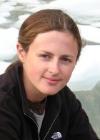 I am interested in conservation genetics, specifically assessment of adaptive genetic variation. My current research is focused on assessing variation in a set of immunity genes (MHC) in African wild dogs, and investigating how patterns of MHC variation differ to that of neutral genetic markers. I am interested in conservation genetics, specifically assessment of adaptive genetic variation. My current research is focused on assessing variation in a set of immunity genes (MHC) in African wild dogs, and investigating how patterns of MHC variation differ to that of neutral genetic markers. |
|
Institute of Biodiversity, Animal Health and Comparative Medicine, CMVLS |
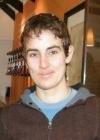 I am interested in understanding the cumulative effects of wind farms on terrestrial and marine birds, using a combination of modelling and primary data analysis. I am interested in understanding the cumulative effects of wind farms on terrestrial and marine birds, using a combination of modelling and primary data analysis. |
| I study the dynamics of antmicrobial resistance in livestock and human populations. Particularly the possible links between the use of antibiotics and occurence of antibiotic resistance in these two different populations. |
|
Institute of Biodiversity, Animal Health and Comparative Medicine, CMVLS |
I am a computational physicist interested in modelling biological problems. My focus has been on stochastic effects applied to genetic networks and protein-DNA interactions in bacterial cells. Recently I started a project on the integration of genetic and epidemiological data in the context of the foot-and-mouth virus. |
|
Institute of Biodiversity, Animal Health and Comparative Medicine, CMVLS |
Sema was a graduate student investigating the potential transmission dynamics of avian influenza in the British poultry industry, supervised by Rowland Kao, Louise Matthews and Stuart Reid. She then took up a research assistant position within the Boyd Orr Centre’s division of the Scottish Government’s EPIC project. She has now taken up a postdoctoral position at the University of Edinburgh studying the transmission dynamics of avian influenza in Southeast Asian poultry. |
|
Institute of Biodiversity, Animal Health and Comparative Medicine, CMVLS |
My current research is looking at the spatiotemporal distribution of genotypes of M. bovis in both the cattle and badger populations in Britain. By examining data recorded over the previous ten years, I hope to identify the role the two animal species and the different M. bovis genotypes play in the ongoing bovine tuberculosis epidemic. |
|
Kath O'Reilly |
My previous research (whilst at Glasgow) was on advanced methods for collection and analysis of surveillance data. Projects have so far focussed on surveillance for endemic infection in Scottish livestock, and of particular interest are combining datasets from multiple sources. |
Anthony O'Hare Institute of Biodiversity, Animal Health, and Comparative Medicine, CMVLS |
I am interested in the computational techniques used in the modelling of infectious diseases at various scales. The development of theoretical models of disease transmission using stochastic differential equation models. Currently my main research is modelling the within herd dynamics of bovine tuberculosis and the spacial dynamics of infectious diseases such as Foot and Mouth. |
|
Institute of Biodiversity, Animal Health and Comparative Medicine, CMVLS |
My research seeks to examine parasite thresholds and the use of the metapopulation paradigm in disease and population ecology using a natural system of rodent populations on the island system of Loch Lomond. |
| I am currently working on a project to determine the effect selection for nematode resistance has on MHC class II diversity in sheep. |
|
Comparative Epidemiology, FVM |
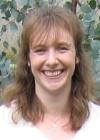 My current research is in the epidemiology of foot pad dermatitis and hock burn in broilers, with an aim to lead to recommendations for management measures to reduce or eliminate these undesirable conditions in commercial broiler flocks. My current research is in the epidemiology of foot pad dermatitis and hock burn in broilers, with an aim to lead to recommendations for management measures to reduce or eliminate these undesirable conditions in commercial broiler flocks. |
|
Macauley Institute |
 Simon's research was at the interface of behavioural, population and community ecology and its application to biodiversity conservation. Simon passed away on 30th August 2009. Simon's research was at the interface of behavioural, population and community ecology and its application to biodiversity conservation. Simon passed away on 30th August 2009. |
Gael Thebaud Ecology and Evolutionary Biology, FBLS |
Gael conducted post-doctoral research with us for 2 years between 2005-2007. Gael was supported by a fellowship from INRA (Montpellier) where he now holds a permanent position. |
|
Institute of Biodiversity, Animal Health and Comparative Medicine, CMVLS |
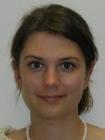 I use primary data collection and analysis, together with mathematical models to study the effects of livestock grazing on the integrity of the ecosystem in the Bale Mountains National Park Ethiopia. I use primary data collection and analysis, together with mathematical models to study the effects of livestock grazing on the integrity of the ecosystem in the Bale Mountains National Park Ethiopia. |
|
Institute of Biodiversity, Animal Health and Comparative Medicine, CMVLS |
My research is focused on measuring the genetic diversity of Foot and Mouth Disease Virus at different spatial scales - within individuals, herds, between farms, and across landscapes - and understanding how patterns of diversity at these different scales are linked. |
| The primary aim of my work is to identify veterinary reasons for foals failing to reach weaning, sales, pre-training, training and racing. We will identify risk factors for the major causes of loss and develop management strategies to minimize wastage. |


 Kate has now taken up a position at the University of York.
Kate has now taken up a position at the University of York. Karim is now working for the Edinburgh Sequencing Centre -
Karim is now working for the Edinburgh Sequencing Centre - 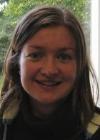 Kath has now taken up a post-doctoral position with Nick Grassly at Imperial College
Kath has now taken up a post-doctoral position with Nick Grassly at Imperial College